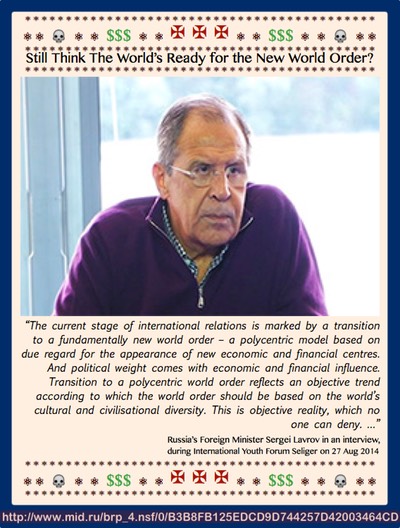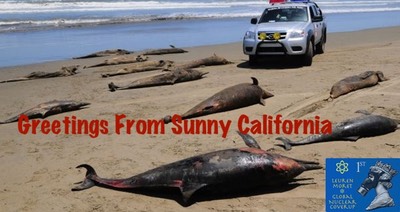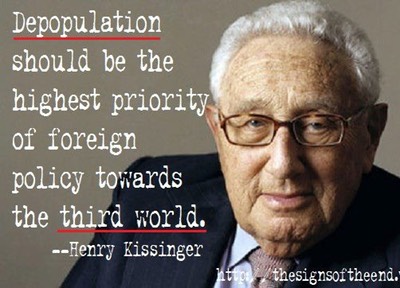- ShortURL: http://on.rt.com/ezitke
- Home /
- Op-Edge /
Epic fail! US diplomats find they can’t control the narrative on social media

Bryan MacDonald is a Russia-based Irish journalist and media commentator who focuses on Russia and its hinterlands and international geo-politics.
Published time: February 02, 2015 01:21
RT bashing is a fashion among the American elite right now. From Victoria Nuland to John Kerry, few are missing their chance to participate. When a minor official from the US’ Moscow embassy decided to join in, it blew up in his face.
"Speak softly and carry a big stick; you will go far”
– President Theodore Roosevelt
Will Stevens is probably a decent skin. His Twitter bio emphasizes that he’s a dad and husband before his role as spokesman for the US Embassy in Moscow. That’s a nice touch. Indeed, Will might be a fan of Roosevelt, or maybe not. One way or another, he’d do well to take some of Teddy’s wisdom on board.
Diplomacy is a delicate art. Usually, an emissary’s mission is to defend the reputation of their homeland and promote its policies, without offending the locals. Now, Will is not an ambassador; he’s a press officer. Even so, taking groundless pops at Russian institutions is probably not the smartest thing a man in his position could do.
Mr. Stevens had a look at RT’s 'In The Now' last week – an excellent show, backboned by Anissa Naoui. Anissa had highlighted a glaring error in The Economist’s nonsense about Russian media. By the way, the magazine is British, but does project a pro-Washington line. Long before Twitter provided an outlet for anonymous folk to troll, The Economist was at it.
Tutorial: How to write a propaganda piece on Russia. Featuring ‘The Economist'
The London-based periodical alleged that Russia's press was censoring reportage on the country's current economic problems. This is complete rubbish. Trust me, I am tired of the constant TV coverage of fiscal circumstances here in Russia. It's wall-to-wall analysis of the ruble's slide, to such an extent that I subconsciously seem to know the currency rates by heart.
Twitter diplomacy, one-track White House
The brave Will decided to conduct a Twitter poll, allowing his 1,600 followers to decide whether they believed RT’s version of events or those of The Economist. As of 6 p.m. Moscow time on Sunday, 617 had ‘favorited’ for RT and 43 had ‘retweeted’ for The Economist. Twitter diplomacy had become Twitter democracy, and Mr. Steven’s epic fail was apparent.
Russia Today teaches us "How to Write Propaganda" https://t.co/JFwwINCUXo#Poll, whom do you trust? RT for @theEconomist, Fav for @RT_com
I can thoroughly understand why he never considered the possible risks. Since 2001, the US landscape has changed. The press, which once aggressively acted as the ultimate watchdog on American government excess, has become pliant. When you are used to facing little or no domestic questioning, it must be quite a shock to finally encounter it.
The weakness of the American ‘fourth estate’ is best seen in Jen Psaki’s mind-numbing briefings at the State Department. The White House press pool loyally sit for nod-fests, with nobody willing to raise their head above the parapet and ask serious questions. Regarding the current Ukraine civil war, there is a stock Psaki statement, available in two variants, which has become a parody of itself.
If the rebels commit an atrocity, she condemns it. Should the pro-Kiev forces murder civilians, Psaki calls for an “investigation.” The assembled hacks dutifully nod their way through the diatribe, fully aware that to point out the inconsistency wouldn’t be a smart career move. This is not exclusive to Washington; not many Russian journalists are willing to strong-arm President Putin. However, unlike Obama, Putin does hold press conferences where those outside the ‘pool’ can grill him.
In 2004, Irish journalist Carole Coleman interviewed George W. Bush before an official visit to Dublin. Accustomed to soft-soaping in Washington, the former president was left reeling as Coleman decided to probe him on the US handling of Iraq. How did the US press corps react? Did they stand up for their colleague who had done what they hadn't the cojones to do? No, they attacked her. They questioned her character, her credentials, and accused her of being “disrespectful” to Bush, the poor mite.
Twitter – a passing fad?
When you come from an atmosphere like that of the US, where the media mostly regurgitates government policy positions, it’s surely quite a shock to discover that many of the other 6.5 billion on Earth don’t agree with you.
Russian-American journalist Yasha Levine recently described Twitter as a “giant cultural bummer,” adding that “people are gonna (sic) look back on it with embarrassment.” Personally, I’ve oscillated from considering the social network to be a great invention to viewing it as a massive waste of time.
However, Levine is spot on about one thing. Twitter, like all previous fads, will decline in influence and popularity, once something better comes along or the moment passes. Most of us will, 10 years hence, be mortified by half the nonsense we’ve posted on it.
Maybe Will Stevens is the lucky one; he’s experienced the inevitable already. Thanks to his tweet, we also know that a portion of those interested in US-Russia relations trust RT over The Economist by a margin of over 14 to 1.
The statements, views and opinions expressed in this column are solely those of the author and do not necessarily represent those of RT.
Visitors to LM:GNC
Leuren Moret: Global Nuclear Coverup
- ❁ Currents
- ⚛ Radiation Omnicide 👥
- 🎥 UC, Davis, Katehi, Illuminati ✠
- 🌎✟☦ One World Religion 🎭
- ♞ Atlanticists v. Putin et al ⚪️
- ✈️ 3 NWO False Flags Connected ➷
- 🔪Ukrainian ✠ Wikileaks 👀 Interview 🎥
- 🚫 Out of Eurasia 🚫
- 💀 Jade Helm, International Implications, NWO Rollouts ⏰
- 🌿 Essential Oils, Nutrition, Frequencies & Health 🌺
- 🎯 R.F.D.E. | H.A.A.R.P. | N.L.P. ⚡️
- ⚛ Leuren Moret: Hiroshima, Nagasaki, Fukushima ⚛
- ❦ Moret & Battis: Jade Helm ❦
- 🌎 New World Order America 🇺🇸
- ⨳ Geopolitics Ukraine | E.U. Judo 🌍
- 👥 Template: Jade Helm
- ✠ America’s Domestic Pacification ✠
- ♨️ Chernobyl, Zaporozhye, Blackmail ⚛
- 💉 REBRANDING DISASTER🔪
- 👤 Eurasian Enigma Arises
- 🔴 Donetsk Nuclear Explosion ⚫️
- 🌍 21st Century Silk Road 🌏
- 🌍 Africa ☗
- ♞ Balkans, The Nameless Triangle
- 🌏 China 🌝
- 🌍 Eurasia 🔴
- 💣 Israel: Out of Erupt!
- ✠ Jesuits/Templar’s Origins & Aims
- 👺 SOROS ✠ NWO 📚 Hacked ✍
- ➴ Pyatt’s ✠ SOROS ♞ Breakfast 🍳
- Breedlove, GOOD RIDDANCE
- 🎱 Obama’s $3 Billion Eurocon 💸
- 🌍 A Psychopath’s Psychopath ✠
- 🔫 Global Hit Squad 💣
- 💀 Neo-Capitalist’s Slave Trade 💰
- 🇺🇸 Bio: Undermine Control
- ↷ Fine Evening For A Minuet ↶
- ✠ Slavery, Then & Now
- 💣 JCS Operation Northwoods
- ✠ The Three Secret Meetings
- Korea Yeonhee (연희) Nuclear Kabuki Theatre
- 🌍 Middle East 💣
- 💣 ISIL: Battered, Retreating 💀
- 🔥 Turkish Coup Attempt 💣
- ⚑ Muslim Brotherhood and ISIS ⚫️
- 🔫💰💉Daesh Terrorist Multi-Tool🔪💣💊
- 🚧 US and Turkey, NWO the Kurds 💸
- ✠ Hitler Bragged on Jesuits ✠
- 🍞 Their Daily Bread & Rubble 💣
- 🔪“Erdogan is Strengthening ISIS”💣
- 🇫🇷 Russia Reveals ISIS’ Money 💰💰
- "Raqqa's Rockefellers” ISIS Full Frontal
- ☞ Smashing Turkey’s Game❌
- 🌍 Juncker | E.U. | Direction ⤣
- 🔪 GLADIO Wolf Kills Russian Pilot ✈︎
- ✈︎ Washington’s SU-24 🎯
- 🌐 Turkey, NATO, War Crime? 🔎
- ➷ 449-Down, ISIL to Go 💣
- 🌎 North America 🔥✠
- 🇷🇺 Russia 🇷🇺
- 🇷🇺 PUTIN OVERHAULS KREMLIN 🏰
- ☛ Who Created ISIS ☚
- 🍳 Food Supply Compromised 🎱
- 🌍 Putin re Ceasefire Syria 🌐
- 👤 Cold War Re-Run 👀
- 🌐 Minsk 101 | Theatre of the Absurd 🌍
- 🌐 Geopolitical Original Sin 🌍
- ♘ Russian Troops | Turkish Border ♘
- 📚 Educating Charlie Rose 🔑
- 🌍 Lavrov's Munich Speech
- 🎱 US Embassy Media Fail 🎭
- ✠ ♛🃏 Putin’s Jar Of Spiders
- 🎱 MOSSAD’S ON THE DOORSTEP 💣
- 📄 This Document is Dynamite 📄
- ♔ The Golden Trap
- ❁ Russian Fusion-Fission
- ❁ Putin’s 7-Point Plan
- ❁ Russian Position Speech
- ✈︎ Ukraine, MH-17, Jesuits Flagged! BRICS Undermined?
- ⏰ Ukraine? 🔥 Bail Out! ✈️
- 💦👤 Psychotropic Zombification ☔️
- 💣 Odessa Trade Union Murders 🔥
- 🃏 Nothing Personal, Just Business 💰
- 💉 BioWeapons for Depopulation 💀
- ⚛ Nuclear Coverup Ukraine | Mines of Zholti Vody 💀
- 🔥 Unsustainable Ukraine 👥
- ☗ ASHES TO ASHES 💀
- 🔪Ukrainian Wikileaks 👀
- ☞ Dispatches From the Front 🔫
- 💣 The Ukrainian Failed State 🌍
- 🔑 Our Decisions Define Us🔑
- ✠ Child Abuse 💀
- 💣 Mozgovoi’s Murder 🔪
- 🎱 Yatsenyuk's Russian Threat 🔮
- ||| Prison Ukraine |||
- ✍ CyberBerkut Reports 👥
- ♨️ Crazy Arseniy’s -USED- Ukraine Fire Sale! ♨️
- ✝ AZOV CRUCIFIXION ✝
- 👤 Eyewitness Debaltsevo Cauldron 💀
- ✍ Historic Slaviansk Doctor Interviewed
- 💀 The Tragedy of Uglegorsk
- ♟ Jan. 2015 Minsk Fail 🃏
- ➷ Tochka Found, Debaltsevo Locked
- 🌍 World Facing Second Chernobyl
- ✈︎ MH-17 AND THE Jesuit Minuet
- ✈︎ MH-17, Jesuits Flagged!, Video
- 💀 Death’s Drummers
- 👤 DPR! Novorossiya Calling
- 💀 Ukraine’s Chernobyl Armor
- 🎱 Gas to Ukraine Blocked
- ❁ Global Nuclear Theatre: Donbass
- ✠ GHOSTS of the 51st BRIGADE
- ❁ Novorossiya: Strelkov Briefing
- 👤 Open Letter to President Putin
- ✈︎ MH-17 Dutch Interim Report
- 💣 Surrendering UA Murdered by Punatives
- ♟ Mutiny of the Euro-Integrators ♟
- ➹ View from Ukraine Operating Room
- ❁ Ukraine’s Violent Escalation
- ❁ Ukrainian Soldier’s Cry for Help
- ⧱ Occupied Ukraine ⧱
- ❁ US State's Nuland Directs Ukrainian Coup
- 📯 Ukraine Deputies Knew Before Maidan
- ❁ Health In 2015
- 💉 Vaccines 💀
- 🎥 Geopolitics, Jesuits & History
- 🎥 Rebranded ✠ The Jesuits ✠
- ⚛ Zaporhyze Nuclear Events & Geopolitics
- ❁ Fukushima Polar Vortex Radiation ❁
- 💀 Embrace, Enfold, Extinguish
- ✈︎ Fear of Flying . . . (1of4)
- ❁ Fukushima: Impact of Fallout On Oceans (Pt.1)
- ❁ Fukushima: Impact of Fallout On Oceans (Pt. 2)
- ❁ North America, Middle East and Fukushima
- ❁ DHS/Napolitano Berkeley Template
- ❁ Fukushima Radiation, Ecocide & Tesla Technology
- ✈︎ Flight 370 Downing
- ✈︎ MH370: The Follow-Up
- ❁ Domestic Radiation Issues
- ❁ Fukushima: Hawaii, Pacific Is. - Unsafe
- ⚛ Fukushima Reactors, Breakdown 1-6 ⚛
- 🌏 International Sites Featuring LM:GNC
- ❁ On To Mongolia 🎥
- 🎥 LKM On Fairdinkum Media 🎥
- ❁ Editorial Page
- ❁ Conversations 📬
- ❁ Waves
- ⚛ Radiation Around The Nation 🌎
- ⚛ Your Radiation #73/74, Sep 10 - 24, 2016 🌎
- ⚛ Your Radiation #71/72, Aug 27 - Sep 10, 2016 🌎
- ⚛ Your Radiation #69/70, July 30 - August 13, 2016 🌎
- ⚛ Your Radiation #67/8,--July 16-30, 2016 🌎
- ⚛ Your Radiation #65-6,--July 2-16, 2016 🌎
- ⚛ Your Radiation #64, July 2-9, 2016 🌎
- ⚛ Your Radiation #62-3, June 18 - July 2, 2016 🌎
- ⚛ Your Radiation #61, June 11-18, 2016 🌎
- ⚛ Your Radiation #60, June 4-11, 2016 🌎
- ⚛ Your Radiation #59, May 28 - June 4, 2016 🌎
- ⚛ Your Radiation #58, May 21-28, 2016 🌎
- ⚛ Your Radiation #57, May 14-21, 2016 🌎
- ⚛ Your Radiation #56, May 7-14, 2016 🌎
- ⚛ Your Radiation #55, Apr 30 - May 7, 2016 🌎
- ⚛ Your Radiation #54, Apr 23-30, 2016 🌎
- ⚛ Your Radiation #53, Apr 16-23, 2016 🌎
- ⚛ Your Radiation #52, Apr 9-16, 2016 🌎
- ⚛ Your Radiation #51, Apr 2-9, 2016 🌎
- ⚛ Your Radiation #47-50, Mar 5 - Apr 2, 2016 🌎
- ⚛ Your Radiation #46, Feb 27-Mar 5, 2016 🌎
- ⚛ Your Radiation #45, Feb 20-27, 2016 🌎
- ⚛ Your Radiation #44, Feb 13-20, 2016 🌎
- ⚛ Your Radiation #43, Feb 6-13, 2016 🌎
- ⚛ Your Radiation #42, Jan 30 - Feb 6, 2016 🌎
- ⚛ Your Radiation #41, Jan 23-30, 2016 🌎
- ⚛ Your Radiation #40, Jan 16-23, 2016 🌎
- ⚛ Your Radiation #39, Jan 9-16, 2016 🌎
- ⚛ Your Radiation #38, Jan 2-9, 2016 🌎
- ⚛ Your Radiation #37, Dec 26 - Jan 2, 2015|16 🌎
- ⚛ Your Radiation #36, Dec 19-26, 2015 🌎
- ⚛ Your Radiation #35, Dec 12-19, 2015 🌎
- ⚛ Your Radiation #34, Dec 5-12, 2015 🌎
- ⚛ Your Radiation #33, Nov 28 - Dec 5, 2015 🌎
- ⚛ Your Radiation #32, Nov 21-28, 2015 🌎
- ⚛ Your Radiation #31, Nov 14-21, 2015 🌎
- ⚛ Your Radiation #30, Nov 7-14, 2015 🌎
- ⚛ Your Radiation #29, Oct 31 - Nov 7, 2015 🌎
- ⚛ Your Radiation #28, Oct 24-31, 2015 🌎
- ⚛ Your Radiation #27, Oct 17-24, 2015 🌎
- ⚛ Your Radiation #26, Oct 10-17, 2015 🌎
- ⚛ Your Radiation #25, Oct 3-10, 2015 🌎
- ⚛ Your Radiation #24, Sep 26 - Oct 2, 2015 🌎
- ⚛ Your Radiation #23, Sep 19-26, 2015 🌎
- ⚛ Your Radiation #22, Sep 12-19, 2015 🌎
- ⚛ Your Radiation #21, Sep 5-12, 2015 🌎
- ⚛ Your Radiation #20, Aug 29 -Sep 5, 2015 🌎
- ⚛ Your Radiation #19, Aug 22-29, 2015 🌎
- ⚛ Your Radiation #18, Aug 15-22, 2015 🌎
- ⚛ Your Radiation #17, Aug 8-15, 2015 🌎
- ⚛ Your Radiation, August 1-8, 2015 🌎
- ⚛ Your Radiation, July 24-31, 2015 🌎
- ⚛ Your Radiation, June 26 - July 24, 2015 🌎
- ⚛ Your Radiation, June 19-26, 2015 🌎
- ⚛ Your Radiation, June 12-19, 2015 🌏
- ⚛ Your Radiation, June 5-12, 2015 🌎
- ⚛ Your Radiation, May 29 - June 5, 2015 🌎
- ⚛ Your Radiation, May 22-29, 2015 🌎
- ⚛ Your Radiation, May 15-22, 2015 🌎
- ⚛ Your Radiation, May 8-15, 2015 🌎
- ⚛ Your Radiation, May 2-8, 2015 🌎
- ⚛ Your Radiation, April 24 - May 1, 2015 🌎
- ⚛ Your Radiation, April 17-24, 2015 🌎
- ⚛ Your Radiation, April 9-16, 2015 🌎
- 🔥 Fire at Oak Ridge 💥
- 💥 NANOWEAPONRY 💥
- 🐄 Radioactive Cattle Teeth, Fukushima 🏭
- 📰 WikiLeaks 🔎 NSA and More 🔦
- ✨Nano ‘Hall of Mirrors’⚡️
- ⚛ 💀 ⚛ into the Hudson River 🌎
- 🚿 Flint, Metropolitan Eugenics 💀
- 🌍 Existential Threat? ☛NATO☚
- 💉 Gates, Poroshenko; Conspiracy, Government 🎯
- 💉 Gates-Poroshenko ZPG Ukraine 💀
- 💀 Paris Massacre Perpetrators 👤
- 🔪 Delgado, Mind Control ♟
- 🌎 MOST NUKED NATION ON EARTH 🌎
- 🎯 Radio Frequency Directed Energy 🎯
- ⚛ Please, Don’t Pick the Mutants 🌻
- ⨳👤⨳ Space-Based Weapons Ban
- √ Saudi OP Strategy Success
- ♨️ Gallery ♨️ Chernobyl Fire ♨️ 2015 ♨️
- 🌍 Monsanto Backdoors E.U.
- 🎉 Crimea’s 1st Anniversary Album 🎉
- 🌏 21st Century Eschalon
- 📰 International Headline Watch 🌏
- ✄ Prouty Place ✑ CUT THE BULL ✂︎
- 🌏 How To Wreck The Environment
- 🇯🇵 Plutonium Isotopes Off Japan
- 🌍 Depopulation Agenda: Europe 👤
- 🔪💉Cease Covert Depopulation Letter🔪💉
- ❁ Dutch Apologize for MH-17 Lies
- ❁ Pacific Dead from Fukushima
- ❁ Strange Fish Story
- ❁ Blood Composition of Monkeys Altered Near Fukushima
- ❁ Secret Army Bases
- ⚛ Fukushima Plutonium Effect ⚛
- ➷ RAND Demographic Military Power ➷
- ⚛ Depleted Uranium | DNA Damage ⚛
- ❁ Hidden Genocide: by Dr. Ernest Sternglass
- ❁ Space Preservation Act of 2001
- ❁ 1972 Rothschild Ball
- ❁ Unsafe Radwaste Disposal
- ♆ Fallout and Reproduction of Ocean Fish Populations
- ⚛ Radiation Around The Nation 🌎
- ❁ Lifestyle
- ❁ Archive
- ⚛ 61 Years of Omnicide ⚛
- 📻 Nanoparticle Toxicity with Leuren Moret ❦
- ❁ New Bombs and War Crimes in Fallujah
- ❁ Global Climate Change . . .
- ⚛ International Radiation Distribution ⚛
- 💀 Depleted Uranium’n’DNA 😱
- ❁ UC Regents Lose Nuke Pgm
- ❁ DU-Trojan Horse
- ❁ LM:GNC (Pt1)
- ❁ LM:GNC (Pt2)
- ❁ World Uranium Weapons Conference 2003
- ⚛ Radionuclide ReMobilization Abatement
- ❁ "America First" Transcription
- ❁ "Whale Archive" Transcription
- ⚛ ⚛ ⚛ Location, Leuren Moret: Global Nuclear Coverup ⚛ ⚛ ⚛
- ❁ Glossary
- ❁ Contact
# # #



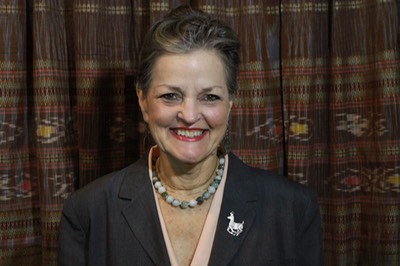


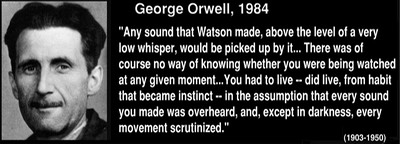
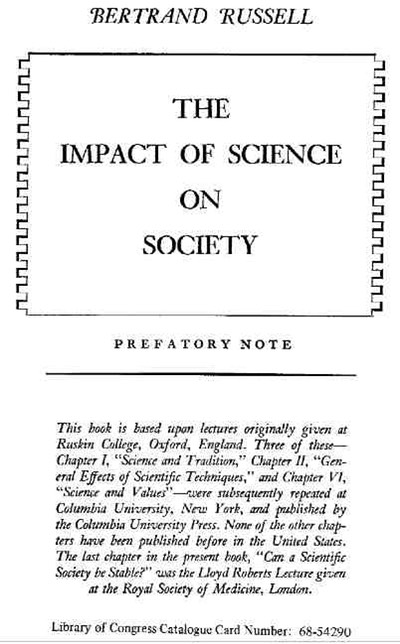
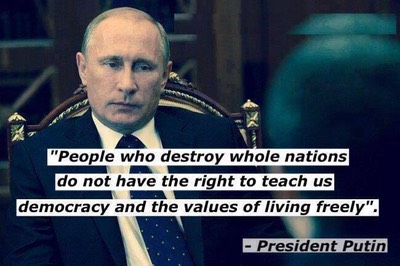
![20120724 - 7-24-2012 The More We Learn - quote from David Rockfeller -_thumb[2]](../../_Media/20120724---7-24-2012-the_med_hr.jpeg)
